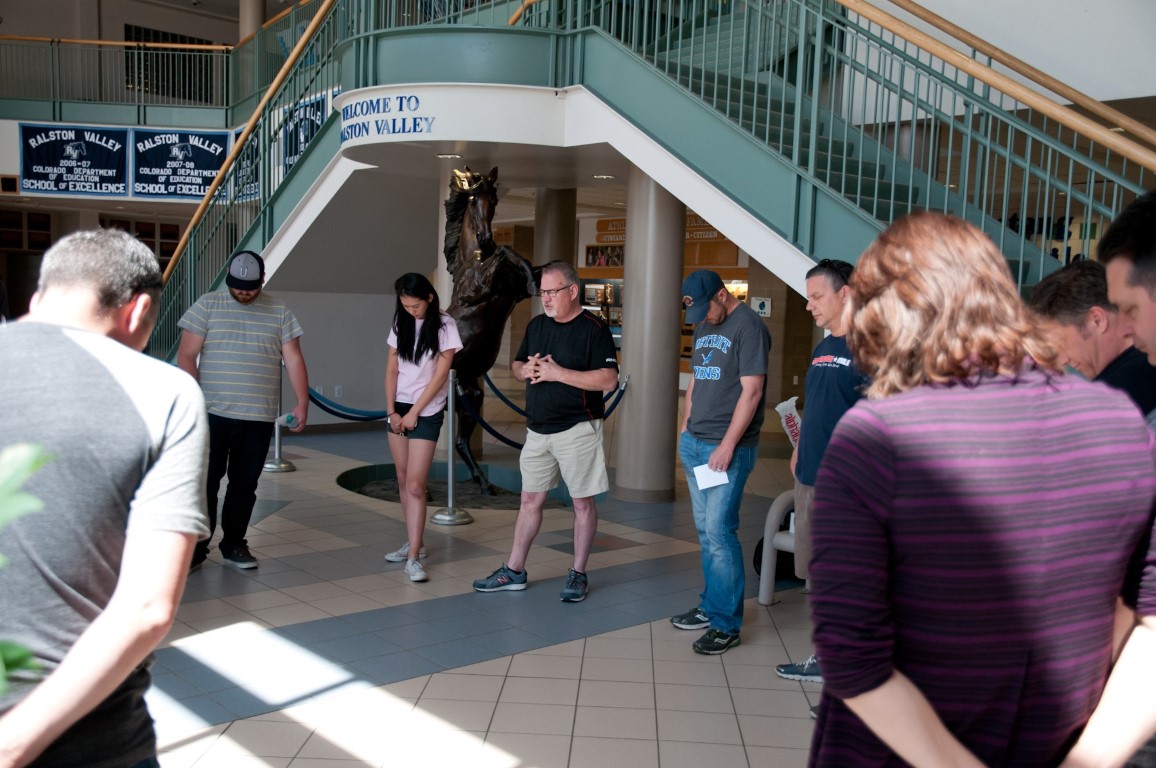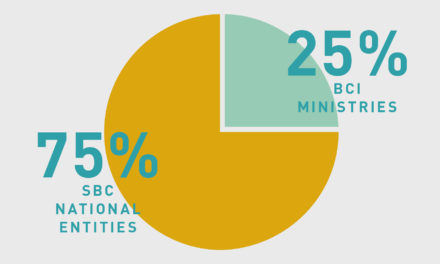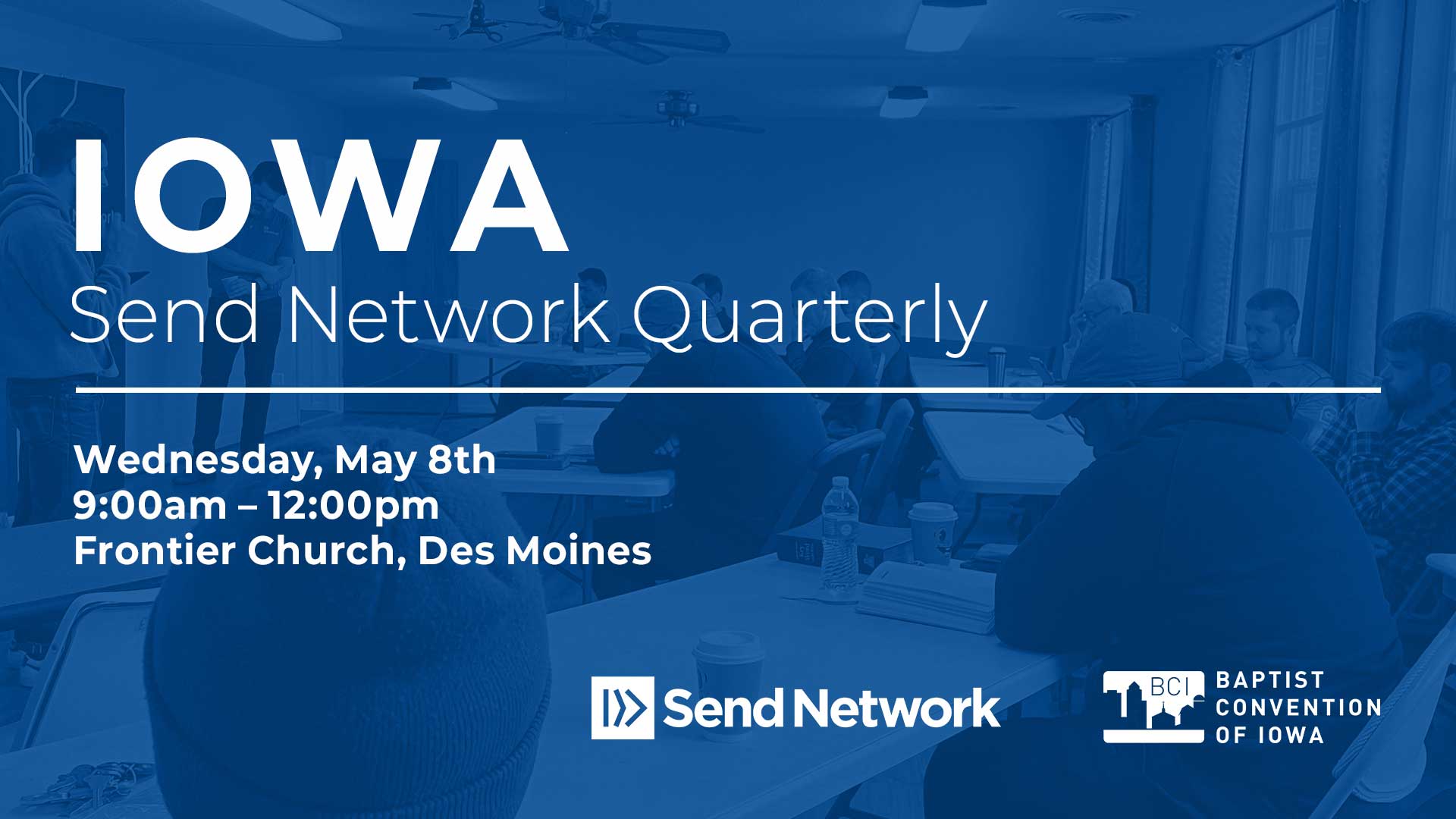The Cooperative Program — Funding the Advance of the Gospel
 Cooperation helps fuel the fire of Southern Baptist missions and ministries. Close to home, Southern Baptists advance the Gospel locally by working together in a local association of churches. The Gospel is advanced beyond the local level through participation in missions endeavors, through prayer for these collaborative endeavors, and by contributions through the Cooperative Program, the unified program for funding Convention work.
Cooperation helps fuel the fire of Southern Baptist missions and ministries. Close to home, Southern Baptists advance the Gospel locally by working together in a local association of churches. The Gospel is advanced beyond the local level through participation in missions endeavors, through prayer for these collaborative endeavors, and by contributions through the Cooperative Program, the unified program for funding Convention work.
When Southern Baptist churches support the Cooperative PRogram in their respective states, their state Baptist convention uses those funds to fuel the ministry and mission goals established by the churches in that state. Each state Baptist convention forwards a percentage of the funds received by the state to the Southern Baptist Convention, providing financial support for more than 10,000 missionaries in North America and around the world, theological education through six Southern Baptist seminaries for more than 16,000 full-time and part-time students, and moral advocacy and promotion of religious liberty through the ERLC. Cooperative Program funds forwarded from the states also provide support for the SBC operating budget and the work of the SBC Executive Committee.
Obviously, to spread the Gospel message to the neighborhood and to the nations requires organization and structure to help facilitate the goal. For more information on the structure of the Southern Baptist Convention, see the companion publication The Southern Baptist Convention: A Closer Look.
The Convention — Working Together for the Gospel
The Southern Baptist Convention was formed “to provide a general organization for Baptists in the United States and its territories “for the promotion of Christian missions at home and abroad, and any other objects such as Christian education, benevolent enterprises, and social services which it may deem proper and advisable for the furtherance of the Kingdom of God” (SBC Constitution, Article II).
The SBC is directed by representatives of Southern Baptist churches, called messengers, who meet once a year to adopt a unified missions and ministry budget called the Cooperative Program allocation budget, elect trustees to oversee the ministry entities of the Convention, receive reports from the SBC entities, and transact the business of the Convention. These messengers come from churches that have voluntarily banded together to support the missionary, educational, moral advocacy, and benevolent causes of the Convention.
Southern Baptists work together to spread the Gospel throughout the land and around around the world. Working through 1,169 local associations (composed of the churches that are geographically close to each other) and forty-two state Baptist conventions (composed of the churches in single or multi-state groupings), Southern Baptists voluntarily unite to engage in the Acts 1:8 pattern of spreading the Gospel — in their local communities, throughout their states, across the nation, and around the world.
Southern Baptist Ministry Entities — Assisting Churches in the Advance of the Gospel
The Convention assigns and conducts its work through eleven ministry entities — two mission boards, six seminaries, an ethics and religious liberty commission, a publishing and retail ministry, and a financial resources services ministry — a woman’s missions auxiliary, and an Executive Committee. While some of these ministries are self-sustaining, the majority are supported by the churches with financial contributions through the Cooperative Program. Of contributions received by the SBC, almost 73.2 percent funds missions and almost 22 percent provides ministerial training through our seminaries. Each of these minitry entities exists for the express purpose of assisting churches in the ultimate goal of advancing the Gospel.
- Missions, evangelism, and church planting are faciliated through the International Mission Board and the North American Mission Board.
- Ministerial preparation and continuing education are provided through Golden Gate, Midwestern, New Orleans, Southeastern,Southern, and Southwestern Baptist Theological Seminaries.
- Christian ethics and religious liberty ministries are assigned to the Ethics & Religious Liberty Commission.
- Church enrichment ministry and literature publication are assignments of LifeWay Christian Resources, which receives no Cooperative Program funding.
- GuideStone Financial Resources which also receives no Cooperative Program funding, manages ministerial retirement insurance needs and administers Mission:Dignity, an assistance ministry for retired ministers and their families.
- The SBC Executive Committee is charged to conduct the work of the Convention between annual meetings in all areas not otherwise assigned to one of the ministry entities.
- The Woman’s Missionary Union is the sole auxiliary of the SBC. It cooperates very closely with the International Mission Board and the North American Mission Board to encourage churches to give generously to support missions through contributions to the Cooperative Program and two annual missions offerings.








